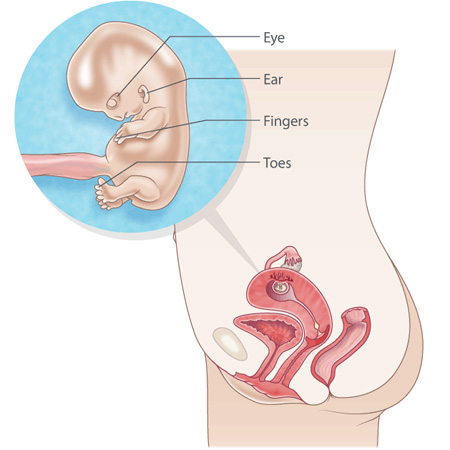You at 10 weeks pregnant
It’s completely normal to feel more:
- emotional and moody than usual
- hungry than usual
- hot than usual
- vulnerable and tired than usual.
You might also notice changes in your sex drive. For example, you might feel less attractive and less interested in sex than before, or your sex drive might increase.
Being open and honest about your feelings with people you know and trust can avoid hurt and misunderstanding.

Antenatal tests at this stage of pregnancy
Your doctor or midwife might talk to you about antenatal tests for chromosomal anomalies, including non-invasive prenatal testing (NIPT). NIPT looks at the risk of your baby having certain chromosomal anomalies. NIPT can be done anytime from 10 weeks onwards.
If you need a chorionic villus sampling (CVS) for medical reasons, it can be done between 11 and 14 weeks of pregnancy.
Exercise during pregnancy
If you’re healthy with an uncomplicated pregnancy, you can probably keep doing regular, moderate exercise during pregnancy, or you can start light to moderate exercise. It’s important to check with your doctor or midwife first.
Your baby when you’re 10 weeks pregnant
Your baby is tiny but growing very quickly:
- It’s about 3.5 cm long from head to bottom and weighs about 8 g.
- All the organs are formed, but few are actually working yet.
- The heart has 4 separate chambers.
- Your baby’s developing elbows, knees, wrists and ankles. The bones are all very soft. The webbing between the fingers and toes has gone. Your baby can almost touch their own face.
- The internal sex organs are finished, but you can’t see the external parts yet.
- The tail has gone.